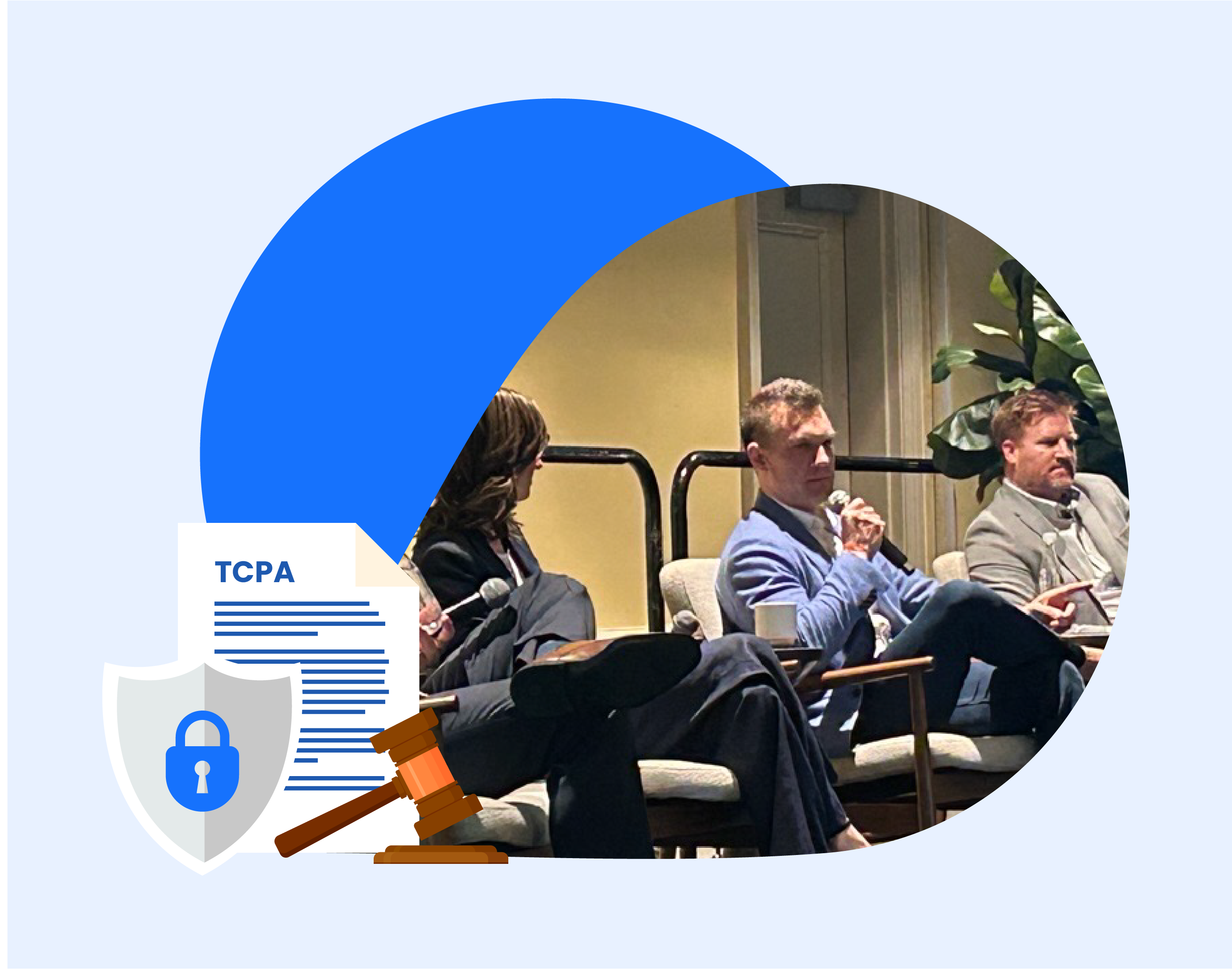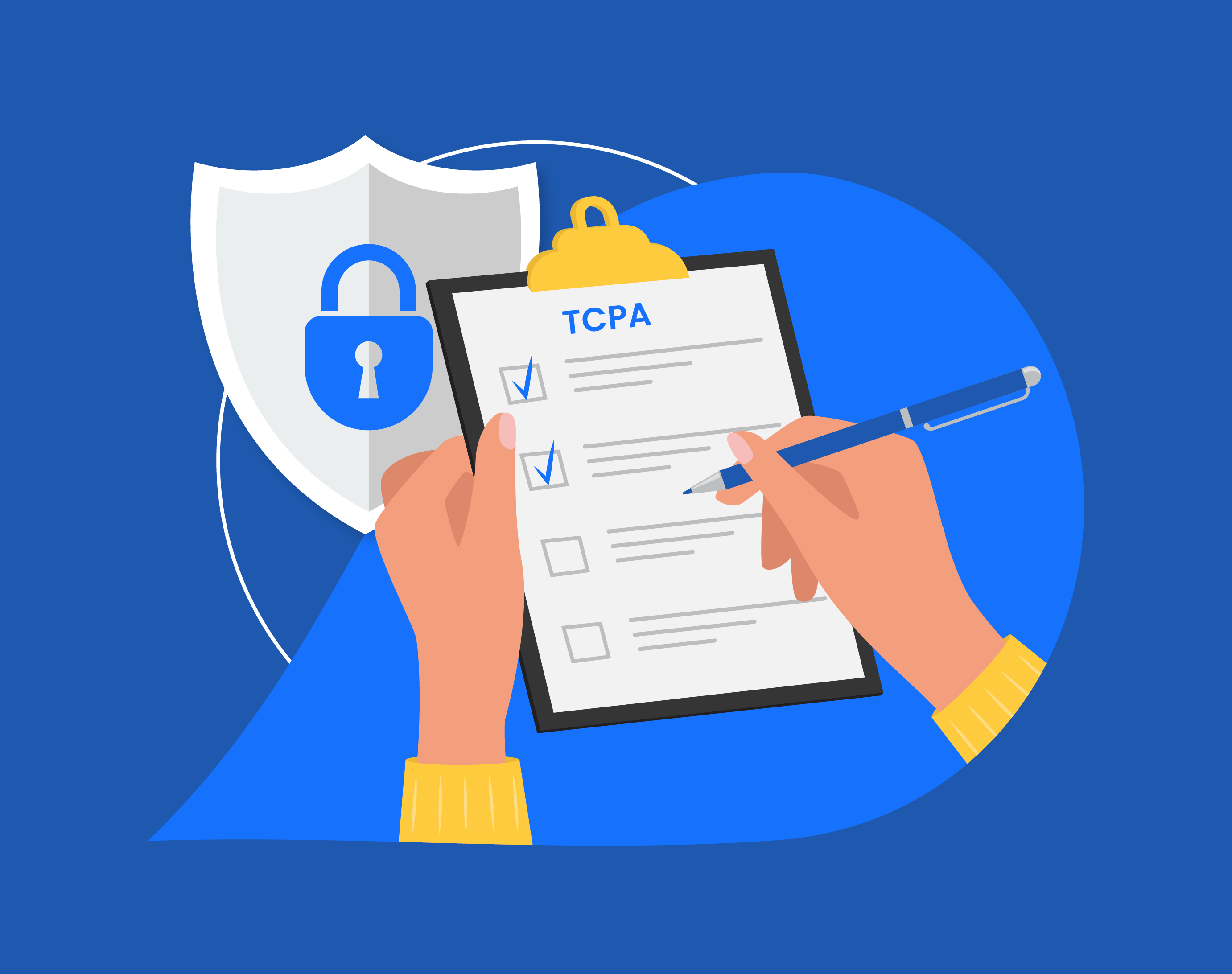How To Get Express Written Consent
Drips is once again collaborating with our favorite TCPA expert, Eric Troutman of Squire Patton Boggs “the Czar of TCPAWORLD.com” (he’s also our Regulatory Attorney and an all-around great guy) to explore this topic so that you can legally launch your SMS strategy.
But what exactly constitutes express written consent, and how should you get it? Here’s what Eric has to say:
“Prior express written consent is the TCPA gold standard. It assures the consumer knows precisely what contact he or she will receive and how he or she will receive it. It protects you, it protects the consumer, and it helps to assure that the right consumer receives the right information — which makes it easier for you to sell your product. It’s a win, win, win, win — when it’s done correctly. That said, the prior express consent rules can be a bit ticky-tack in nature. They are not intuitive and “magic language” is required—so pay close attention to the regs…and your legal counsel.”
What Is Prior Express Written Consent?

47 CFR § 64.1200(f)(9)—?The term prior express written consent means an agreement, in writing, bearing the signature of the person called that clearly authorizes the seller to deliver or cause to be delivered to the person called advertisements or telemarketing messages using an automatic telephone dialing system or an artificial or prerecorded voice, and the telephone number to which the signatory authorizes such advertisements or telemarketing messages to be delivered.
- (i) The written agreement shall include a clear and conspicuous disclosure informing the person signing that:
- (A) By executing the agreement, such person authorizes the seller to deliver or cause to be delivered to the signatory telemarketing calls using an automatic telephone dialing system or an artificial or prerecorded voice; and
- (B) The person is not required to sign the agreement (directly or indirectly) or agree to enter into such an agreement as a condition of purchasing any property, goods, or services.
- (ii) The term “signature” shall include an electronic or digital form of signature, to the extent that such form of signature is recognized as a valid signature under applicable federal law or?state?contract law.
When Is Express Written Consent Needed?

Eric helped us out with a quick overview of why express written consent is needed. If any of these situations apply to you, you’ll need to have express written consent before you reach out:
- Any call made to a cell phone (including business cell phones) using automated or prerecorded voice technology and contains marketing content;
- Any call made to a residential landline using a prerecorded or artificial voice and contains marketing content;
- Any call made to a residential landline on the DNC list for marketing purposes unless the caller has an established business relationship or is responding to an inquiry;
- Any prerecorded call to a residential landline in excess of the TRACED Act exemption limits (including administrative calls);
- TRACED Act limits are three calls per month for "commercial calls," surveys, and charitable calls, and up to three calls per week for healthcare related calls.
- TRACED Act implementation is currently stalled due to the Paperwork Reduction Act, so it will be a while before this takes effect.
- Any SMS sent for marketing purposes that is using an ATDS.
- Find out more about ATDS here.
Whose Consent Is Needed?

Express written consent must come from the “called party,” a term that also applies to texting. However simple this term may seem — it’s not. There are four different possible called parties:
- Intended recipient
- Actual recipient
- Regular user of the phone
- Subscriber to the phone
Although most courts typically find that consent must come from the subscriber, some courts recognize an exception when a phone number has recently changed hands. Here is one recent example:
- Sandoe v. Boston Sci. Corp., Civil Action No. 18-11826-NMG, 2020 U.S. Dist. LEXIS 2800 (D. Mass. Jan. 8, 2020
- The caller has the right to rely on consent from the former subscriber for a reasonable period of time.
Unfortunately, a lack of express written consent can cause significant problems. Just take a look at the following situations:
- The caller is potentially liable for mistyped phone numbers
- The caller is potentially liable where the consumer provides a fake or different number
- The caller is potentially liable where the number changes hands without knowledge
Because these occurrences can happen quite easily (even if they are accidental), you’ll need to take great care when dealing with outbound calling or messages. Our suggestion (in addition to consulting with an attorney) is to partner with professionals who understand the complexities of SMS marketing, like Drips.
Are you interested in working with us? Let us know!
Disclaimer: This blog and all information contained in it does not, nor is it intended to, constitute legal advice; instead, all information and content herein is for educational and informational purposes only. Information in this blog may not constitute the most up-to-date information, and Drips, the writers of this blog, and any contributors or contributing law firms herein disclaim any obligations relating to the timeliness or accuracy of the information contained here. No warranties should be implied. All liability with respect to any actions taken or not based on the contents of this blog is expressly disclaimed. Readers should consult with an attorney to obtain advice with respect to any particular legal manner, and no reader should act or refrain from acting on the basis of information on this blog without first seeking legal advice from counsel in the relevant jurisdiction.







